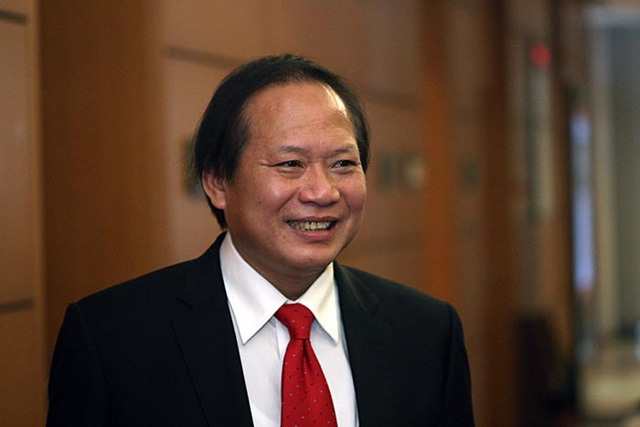.jfif) Opinion
Opinion

Trương Minh Tuấn, Minister of Information and Communications, speaks to the media about the acute problem of irritating messages sent from unregistered simcards and the role of telecom companies to control them.
 |
| Minister Trương Minh Tuấn |
Trương Minh Tuấn, Minister of Information and Communications, speaks to the media about irritating messages sent from unregistered SIM cards and the role of telecom companies to control them.
Unregistered SIM cards and unwanted messages have become a headache for many people. Though the Ministry of Information and Communications (MIC) has issued legal documents on this problem, not much progress has been made. What will the ministry do next?
The rapid development of telecommunications and IT technology recently has resulted in big changes in all societies, including Việt Nam. Such rapid development has brought about both positive and negative impacts on society and the problem of unwanted messages (commercial messages) is a good example.
I’m sure that we’re all irritated to receive unwanted messages. The root cause of this problem is the sale of unregistered SIM cards, or pre-paid SIM cards, which find their way onto the market and are hosted on different networks. In many cases, SIM card users’ private information has been used without their consent. This is a result of poor management from telecoms.
Selling unregistered SIM cards has happened for years, not only in Việt Nam but also in many other countries. Of course, such a practice has helped telecom companies, SIM card agents and customers. In other words, such benefits go to all involved parties – a phenomenon in a market economy.
However, from the perspective of State management, the sale of unregistered SIM cards is an indication of poor management which leads to waste of the country’s digital reserves. In the worst case scenario, it may lead to information disclosure which may undermine national security.
To create a clean and healthy telecommunication and internet environment in Việt Nam, we have to eliminate the selling of unregistered SIM cards.
What are the roles of telecom companies in this fight?
Each telecom company has its own market strategy. But whatever they do they must comply with laws governing telecommunications and information technology.
In the fight to put an end to the sales and use of unregistered simcards, the MIC has worked with telecoms companies. I highly appreciate the telecoms companies’ commitment to retrieve all their pre-activated SIM cards.
In addition to the telecoms firms’ proposal to tighten the control of unregistered SIM cards, does your ministry have any plans to help stop the practice?
A rule is already in place for the activation of a SIM card. But some SIM cards agents fail to follow that rule and sell unregistered SIM cards. In the near future, our ministry will order all telecoms firms to uphold the law and put tight controls on SIM card activations. We’ll also try to create an archive of SIM card users nationwide with help from all telecoms firms operating in the country.
In many countries all pre-paid or post paid subscribers have to provide personal information to the service provider before the service is activated. This is a good way for the government or telecoms firms to manage subscribers.
In addition, if pre-paid subscribers have enjoyed more preferential policies than post-paid subscribers, in the near future, the telecoms companies will adjust their policies to encourage people to switch to post-paid. To achieve that goal, the telecoms companies have to offer their clients more added value services, for example giving them free mobile phones.
Last but not least, all the telecoms companies must improve their services in order to get more clients – a core issue for their business development.
In your capacity as commander in chief of the sector and a client of the service, what services do you expect to receive from telecoms?
I highly appreciate the novel services offered to their clients by the telecoms firms. They have created big changes in our lives.
I hope their services will be improved for the clients’ satisfaction and stop creating nuisances.
In my capacity as commander in chief of telecommunications and IT, I want all enterprises in the sector to do their best to improve service.
I also ask the telecoms firms to put the interest of their clients in their day to day business. Recently, all Vietnamese telecoms firms were granted licences to introduce 4G into their service, so I call on you all to maximise the value of hi-tẹch to use in your services, particularly in health services, education, transport, e-government and smart city building. — VNS